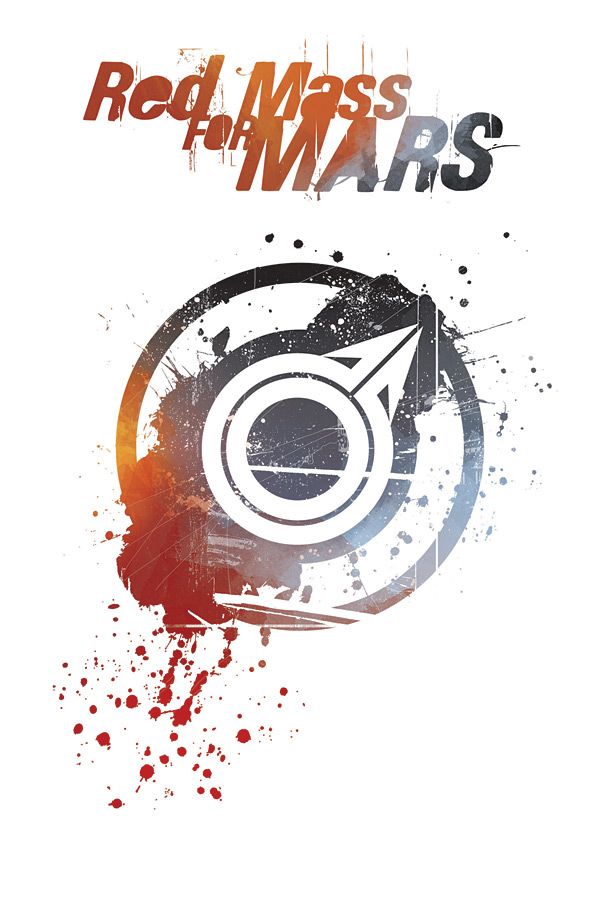Jonathan Hickman has a unique voice in comics. His work tends to be text heavy, often data-heavy, and overly expository. He violates the principal of "show, don't tell" more often than not. But, in his case, the approach works because it is so unique, and because Hickman has something to say in the telling. I've called his first major work, "The Nightly News," a kind of propaganda -- a "call to arms," I said in my review of the trade paperback. Hickman lashed out at the media, and at the corrupting systems at work in our country -- systems that demoralize and dehumanize the individual.
In "Red Mass for Mars," Hickman explores similar themes but against a shockingly different backdrop. In this case, it's (mostly) the world of 2115, a specifically post-apocalyptic world in which radical climate change, mutating super-viruses, nuclear terrorists, and a nano-machine plague wiped out much of the Earth's population. And that was all before the alien invasion occurred.
Hickman piles on the end-of-the-world nightmares to provide the bleakest possible setting in which to tell his story. And it's important to note that he's not providing the art here. While "The Nightly News" was an innovative blending of graphic design and typesetting, Hickman as an artist, well, he's a great designer. He is better served by Ryan Bodenheim's illustrative work here, which evokes a European look -- a kind of Moebius/Geoff Darrow quality. And Hickman's coloring, heavy on astral blues and bloody reds, gives the comic a distinctive palate that distinguishes it from its Marvel and DC brethren. It is, after all, a superhero comic. A superhero comic that's a bit different.
I won't go so far as to say "Red Mass for Mars" is a superhero comic unlike any other. It's not. It has a tone and manner of execution that's similar to some of the things Warren Ellis has done in the past. That detached narrator, calmly describing the indescribable. The matter-of-fact description of Earth-shattering events. The heroes as men and women doing a job, not as idealized, grandiose figures of worship. The one "hero" who positions himself as a god, Lightbender, is portrayed with monstrous arrogance and xenophobia. His hubris has led him to overthrow Buckingham Palace and announce his plans to rid the world of non-English languages, violently. And this activity is referred to by the narrator as "not-for-profit charity work." The irony is thick, and the characters are flawed, just the way I like them.
This first issue just establishes the setting, really, and doesn't go much beyond it. Presumably, the remaining three issues will show the human resistance to the alien threat. But Hickman's other work has avoided cliche, and I hope this one will, also. We've seen alien invasion stories a million times (this summer's Marvel mega-crossover is founded upon it, of course), but I think if anyone can provide a fresh spin on that stale old story, it's Jonathan Hickman. And he's off to a good start here.

